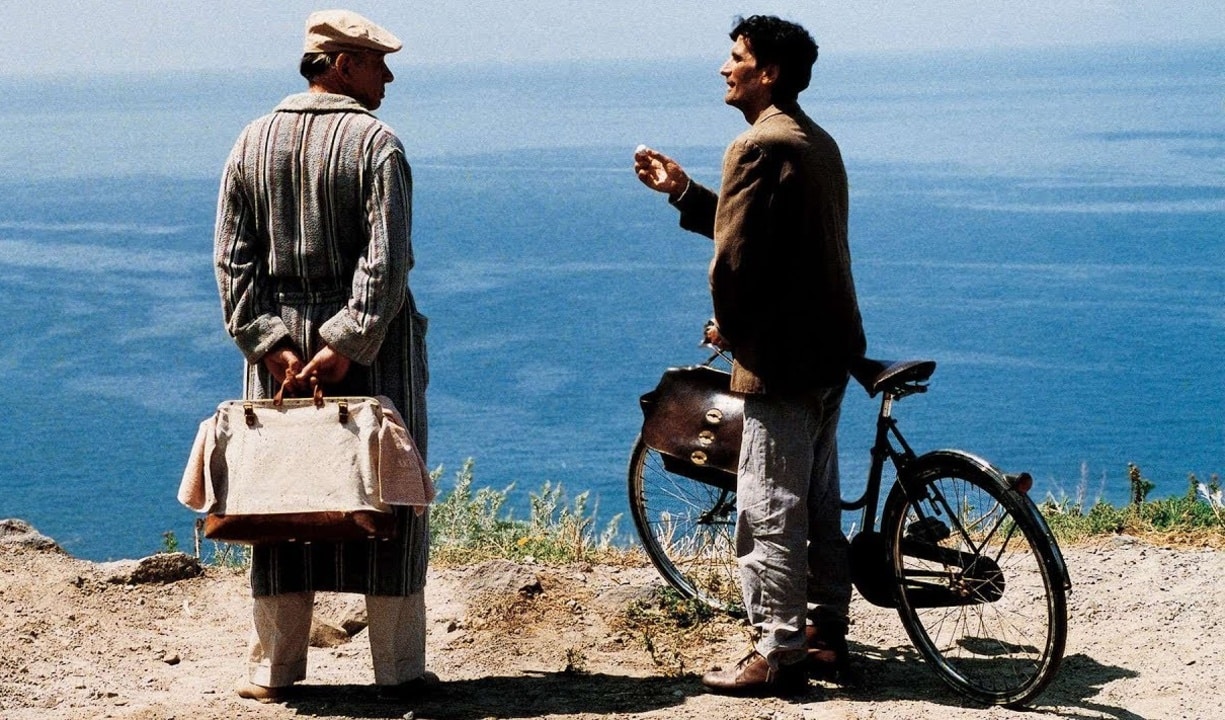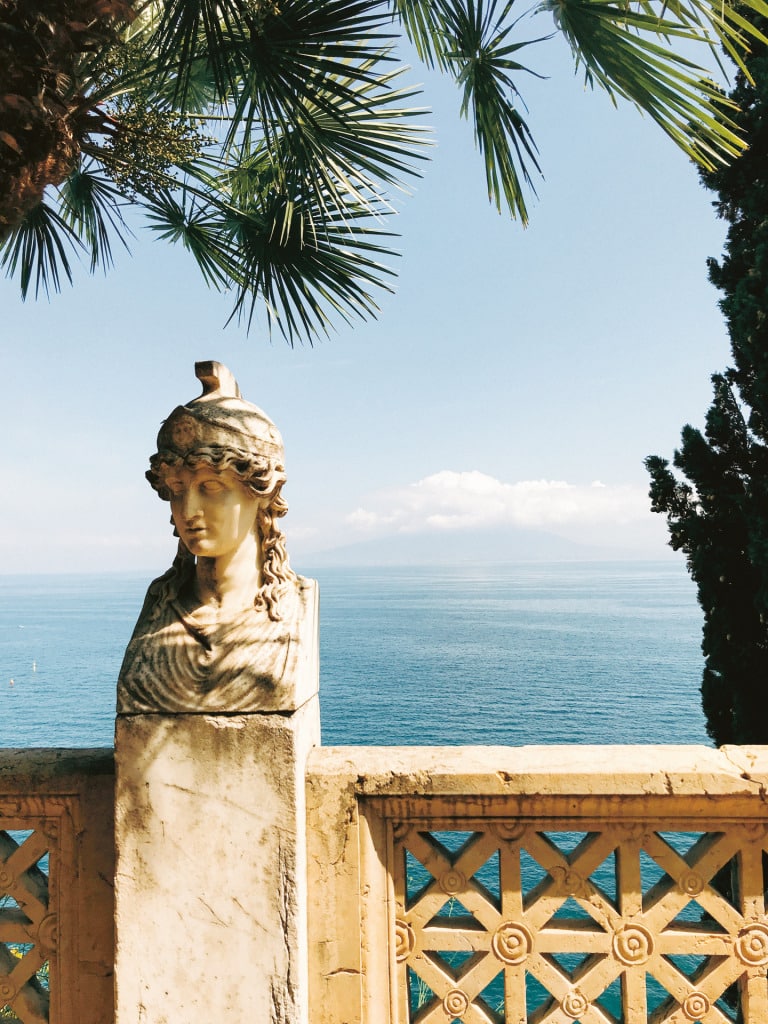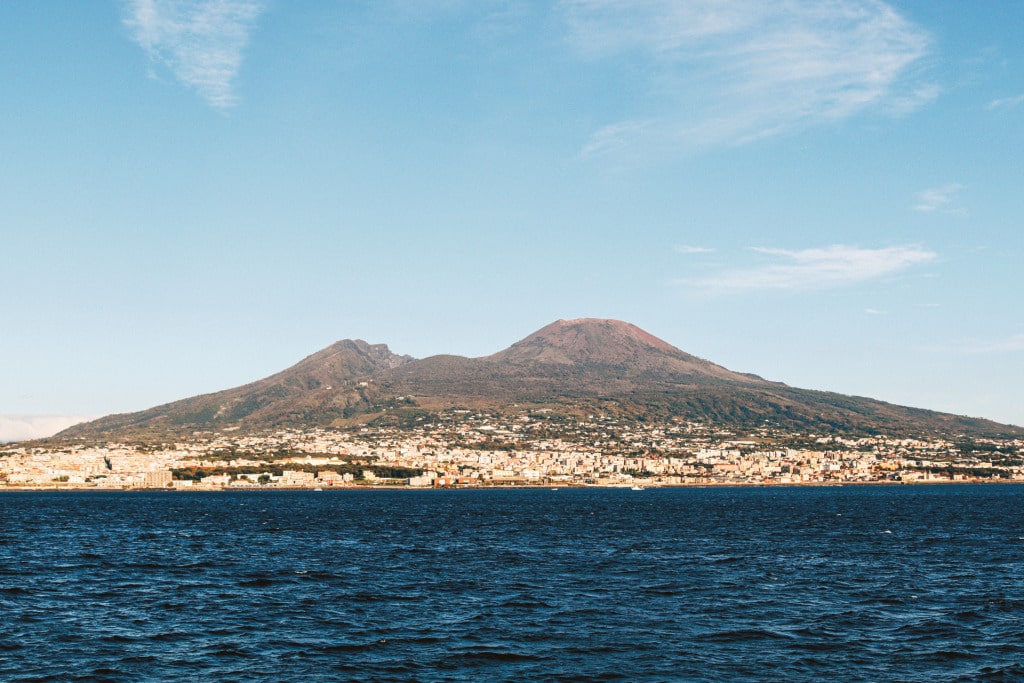
For fans of Massimo Troisi’s 1994 film Il Postino, the dreamy landscape of the Aeolian islands will be familiar. The island of Salina, the second largest of this mystical cluster of seven volcanic rocks just north of Sicily, was the location of the unspecified island where Chilean poet Pablo Neruda strikes up a friendship with the postman during his exile in Italy. The Aeolians are not easy to get to, but their remoteness means they have been spared the onslaught of mass tourism and still retain an otherworldly feel. Salina in particular combines everything that is best about Sicily: laidback glamour, faded grandeur, pink-plastered churches, a vague aura of chaos and most importantly, delicious food.
It was May when I first visited in 2017, and the bougainvillea was in full blowsy bloom and there were no other tourists. I was blown away by the natural beauty as well as the eerie quiet so reminiscent of scenes from Il Postino. It was lunchtime and at the only bar that was open: Bar Malvasia, named after the sweet local wine—we ordered what turned out to be a perfect caponata. After lunch, as though the siesta was collectively timed, people began reappearing on the dot at 3.30pm, descending sleepily from their homes to crack on with the business of the afternoon. My nervousness at being stuck on this seemingly deserted island evaporated and was replaced by a profound tranquillity as I set about enjoying the flavours, scents and beauty of Salina.


The food of the Aeolians is characterised—much like the people—by its insularity. Being so remote, inhabitants historically had to rely on what was available—vegetables and herbs that grew on the mountains as well as what the sea could provide. This is embodied in one of the humblest but most important ingredients of the Aeolians: capers. These plants are at the centre of life in the Aeolians and are cooked in antipasti, salads, pasta with fish, meat and even served simply on toast or candied for deserts. Caper plants have long tendril-like branches and neat round leaves, they appear in lots of surprising places throughout the Mediterranean and often self-plant in the nooks and crannies of many of Italy’s crumbling buildings, though on Salina they are planted very neatly in rows and tended with great care. Not many people realise that a caper is the plant’s flower still in bud. If left to mature rather than being harvested, it blooms into an elegant tropical looking pink and white flower. Outside many houses you will see hand written signs saying ‘Capers from my garden, €2’.
Not many people realise that a caper is the plant’s flower still in bud. If left to mature rather than being harvested, it blooms into an elegant tropical looking pink and white flower. Outside many houses you will see hand written signs saying ‘Capers from my garden, €2′
Amber Guinness
Aside from this adhoc trade, there are also impressive enterprises based around this bud, such as Sapori Eoliane. This hundred year old caper farm sits just above the bay of Pollara on Salina’s north-west coast, the beach where local postman Enzo had his philosophical conversations with the poet Neruda in the film. Today, the farm is run by Maurizia, a descendant of the farm’s founder, who manages their four thousand caper plants. These are harvested at the height of summer and cooked and preserved in various ways to be sold in jars and shipped all round the world.
A caper tasting at Sapori Eoliani quickly teaches you not to underestimate these little buds as they are a wonderful way to pep up any dish and to elevate the simplest meal into something sophisticated. Many of the recipes in my new book, Italian Coastal, take inspiration from Salina and its culture of making the simple sublime—like the perfect local dish Linguine ai capperi—pasta with a tomato sauce cooked down with onions and capers. This is the magic of Salina, the remoteness and beauty make you feel closer to nature. You learn to take pleasure in the simplest of things, which are in turn elevated to the sublime—a fitting spot to exile a poet.



